Decentralized Finance (DeFi): Power of Financial Services
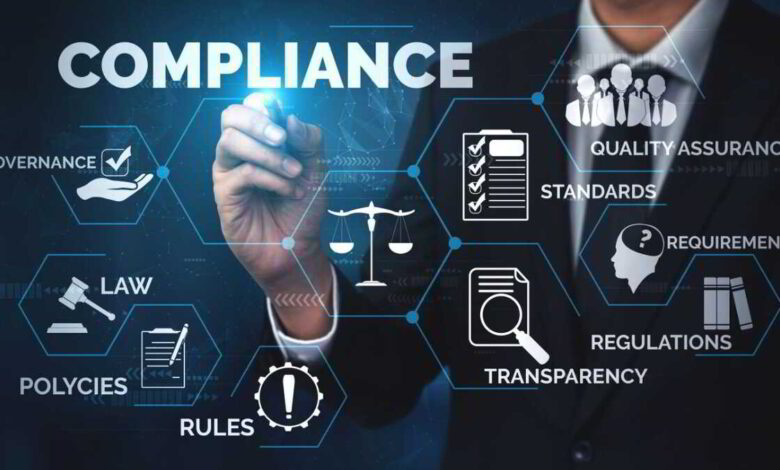
Decentralized Finance (DeFi) In today’s rapidly evolving digital landscape, a groundbreaking financial revolution is taking place. Decentralized Finance, or DeFi, is reshaping traditional financial systems, empowering individuals, and unlocking new possibilities like never before. In this article, we will delve into the exciting world of DeFi and explore how it is disrupting the established norms of finance.
With Decentralized Finance (DeFi) transactions are no longer limited to centralized intermediaries such as banks or brokers. Instead, they are facilitated by smart contracts on Blockchain networks, enabling peer-to-peer interactions and eliminating the need for trust in third parties. This decentralized approach not only promotes transparency but also provides open access to defi financial services for anyone with an internet connection.
As traditional finance grapples with inefficiencies, high costs, and exclusivity, DeFi offers a fresh alternative. Through defi platform development, individuals can also engage in a myriad of financial activities, including lending, borrowing, trading, and earning passive income. The boundaries of traditional financial instruments are expanding, and DeFi is at the forefront of this digital financial transformation.
Moreover, DeFi is creating opportunities for global financial inclusion. By leveraging Blockchain technology, it transcends geographical limitations and allows individuals from underserved regions to access defi financial services previously out of reach. Empowering the unbanked and underserved populations has the potential to uplift economies and drive sustainable defi platform development worldwide.
The Rise of Decentralized Finance (DeFi):
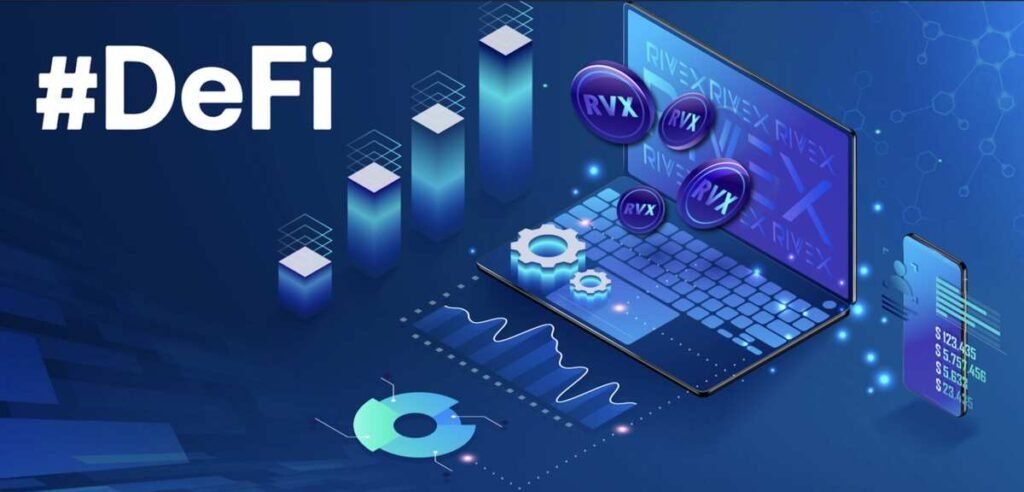
Over the past few years, Decentralized Finance (DeFi) has witnessed an extraordinary surge in growth and popularity, capturing the attention of individuals, investors, and institutions alike. This groundbreaking financial movement is revolutionizing the traditional financial landscape by leveraging the advantages of decentralization, transparency, and permissionless innovation.
One of the key factors contributing to the meteoric rise of DeFi is its fundamental principle of decentralization. Unlike traditional financial systems that rely on centralized intermediaries, DeFi operates on defi in blockchain technology, empowering individuals with direct control over their assets and eliminating the need for intermediaries. This decentralization fosters Decentralized Finance (DeFi) autonomy, providing users with unprecedented access to Defi financial services.
Transparency is another crucial factor
Transparency is another crucial factor fueling the growth of DeFi. Every transaction and smart contract execution on the Blockchain is transparently recorded, ensuring an immutable and auditable history of financial activities. This transparency engenders trust and confidence among users, as it removes the opacity and potential for manipulation often associated with centralized financial systems.
Furthermore, DeFi encourages permissionless innovation, enabling anyone to build and deploy financial applications on open defi in blockchain networks. This open nature of defi platform development has paved the way for an explosion of creativity and experimentation. Developers and entrepreneurs have embraced the opportunity to create a vast array of DeFi protocols, ranging from decentralized exchanges and lending platforms to yield farming and decentralized insurance.
The allure of Decentralized Finance (DeFi) extends beyond the technology enthusiasts and early adopters. DeFi offers numerous practical advantages, such as the ability to earn passive income through yield farming, access to decentralized lending and borrowing defi financial services without requiring credit checks, and the creation of stablecoins pegged to real-world assets. These advantages have attracted a diverse user base, including crypto enthusiasts, investors seeking high-yield opportunities, and individuals in underserved regions with limited access to traditional financial infrastructure.
Decentralized Finance (DeFi) challenges associated
As DeFi gains momentum, it is crucial to address the challenges associated with this nascent ecosystem. Security vulnerabilities, smart contract bugs, and regulatory uncertainties pose risks that must be managed to ensure the long-term sustainability of DeFi. However, the DeFi community is also actively addressing these challenges, implementing rigorous security audits, embracing decentralized governance models, and working collaboratively with regulatory bodies to establish clear guidelines.
The rise of DeFi signals a paradigm shift in the financial world. With decentralized systems offering increased financial autonomy, transparency, and opportunities for innovation, the potential impact of DeFi on the global economy is immense. As than individuals and institutions continue to recognize and embrace the advantages of Decentralized Finance (DeFi) landscape is being reshaped, ushering in a new era of inclusive and accessible defi financial services.
Demystifying DeFi: Unveiling Smart Contracts, DEX, Liquidity Pools, and Yield Farming
Decentralized Finance (DeFi) is an innovative financial ecosystem that operates on Blockchain technology, enabling individuals to engage in various financial activities without the need for intermediaries. To truly understand DeFi, it’s essential to grasp key concepts such as smart contracts, decentralized exchanges (DEX), liquidity pools, and yield farming. Let’s dive into these concepts and explore some popular DeFi projects.
Smart Contracts Decentralized Finance (DeFi)
At the core of DeFi, smart contracts are self-executing agreements coded on defi in blockchain platforms like Ethereal. These contracts contain predefined rules and conditions, automating the execution of transactions when specific criteria are met. They ensure transparent, tamper-proof, and irreversible transactions, removing the need for intermediaries.
Decentralized Finance (DeFi) Exchanges (DEX):
Unlike centralized exchanges, DEXs facilitate peer-to-peer cryptocurrency trading without relying on a central authority. DEXs utilize smart contracts to match buy and sell orders, enabling direct asset swaps between users. This Decentralized Finance (DeFi) approach offers enhanced privacy, security, and control over funds. Examples of popular DEXs include Uniswap, Sushi Swap, and Pancake Swap.
Liquidity Pools:
Liquidity pools are integral to DeFi’s decentralized exchange model. They consist of funds provided by individuals (liquidity providers) than that enable seamless trading in DEXs. Liquidity providers contribute their assets to the pool and receive liquidity pool tokens representing their share. These tokens can also be redeemed, along with a proportional portion of the transaction fees generated by the pool. Uniswap’s liquidity pools, for instance, have played a significant role in the growth of DeFi.
Yield Farming Decentralized Finance:
Users lock their assets in liquidity pools or other defi platform development and, in return, receive rewards in the form of additional tokens or fees. Yield farming incentivizes users to contribute to the growth of DeFi ecosystems and can also be an attractive option for investors seeking higher yields. Popular platforms for yield farming include Compound, Aave, and Curve Finance.
Examples of Popular DeFi Projects:
- Aave: Aave is a Decentralized Finance lending platform that enables users to lend and borrow cryptocurrencies without intermediaries. It offers variable and stable interest rates, collateralized borrowing, and flash loan functionalities.
- Maker DAO: Maker DAO is a decentralized autonomous organization (DAO) responsible for creating and governing the stablecoin DAI. DAI maintains a peg to the US dollar through a system of collateralized debt positions (CDPs) and autonomous feedback mechanisms.
- Compound: Compound is a lending protocol where users can also lend or borrow cryptocurrencies. Interest rates are algorithmically determined based on supply and demand dynamics, creating a dynamic and efficient lending decentralized finance market.
By grasping these fundamental concepts and exploring popular DeFi projects, you can also gain a deeper understanding of the possibilities and innovations that DeFi brings to the financial world.
Unleashing the Power of Decentralized Finance (DeFi): Empowering Financial Inclusion, Cutting Intermediaries, Amplifying Returns, and Enabling Global Accessibility
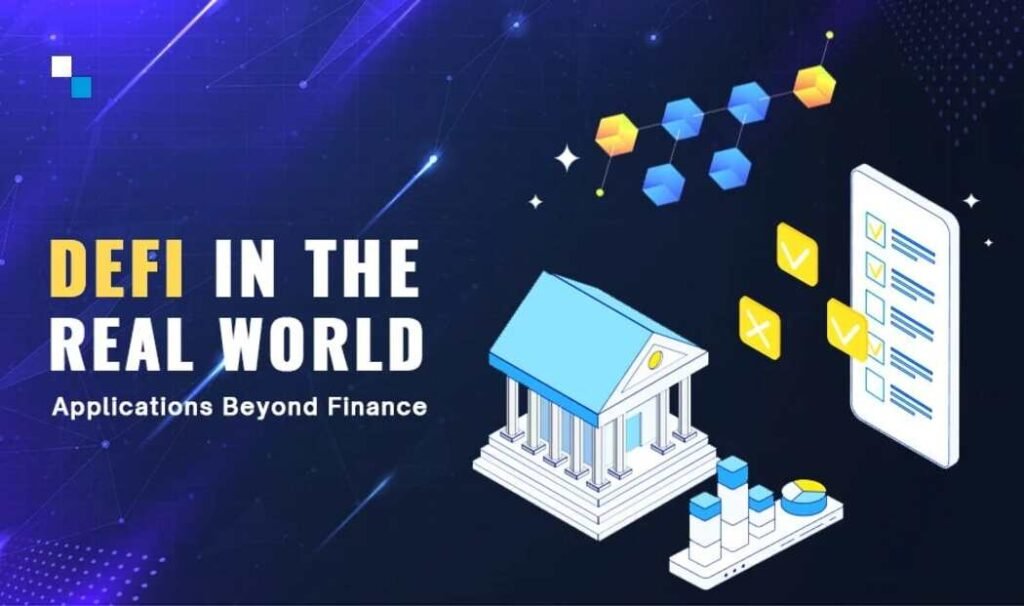
Decentralized Finance (DeFi) isn’t just a buzzword; it’s a transformative force than that brings a host of benefits to users worldwide. By enabling financial inclusion, reducing reliance on intermediaries, offering higher returns through yield farming, and promoting global accessibility, DeFi opens up a world of possibilities. Let’s delve into these benefits and explore how they shape the future of Decentralized Finance (DeFi).
1: Financial Inclusion:
DeFi has the power to break down barriers and grant financial access to individuals who have been historically excluded from traditional financial systems. By leveraging Blockchain technology, DeFi allows anyone with an internet connection to participate, irrespective of their location, income level, or background. This inclusivity fosters economic empowerment and opens avenues for wealth creation for the unbanked and underserved populations.
2: Reducing Reliance on Intermediaries:
Traditional financial systems heavily rely on intermediaries such as banks, brokers, and clearinghouses. DeFi challenges this status quo by leveraging smart contracts and defi in blockchain technology to facilitate direct peer-to-peer transactions. By eliminating intermediaries, DeFi reduces associated fees, delays, and the need for trust in third parties. Users can also regain control over their funds and transact with greater efficiency, transparency, and security.
3: Higher Returns through Yield Farming:
Defies yield farming mechanism has captured the attention of investors seeking attractive returns. By participating in liquidity provision and staking activities, users can also earn additional tokens or fees as rewards. Yield farming incentivizes users to contribute liquidity to DeFi protocols, fueling their growth while offering the potential for higher yields compared to traditional financial instruments. However, it’s important to note that yield farming carries its own risks, and users should exercise caution and conduct thorough research.
4: Global Accessibility Decentralized Finance (DeFi):
Defi transcends geographical boundaries, providing individuals from all corners of the world access to defi financial services. This global accessibility is particularly significant for those residing in regions with limited or unreliable traditional banking infrastructure. With just an internet connection and a digital wallet, users can participate in DeFi protocols, trade assets, borrow funds, or earn passive income. This accessibility contributes to a more equitable and interconnected global financial ecosystem.
5: Financial Innovation and Experimentation:
DeFi is a hotbed of innovation and experimentation. The permissionless nature of defi platform development allows developers, entrepreneurs, and individuals to create and deploy novel financial applications. This freedom encourages creativity and drives forward-thinking solutions. New concepts such as Decentralized Finance (DeFi) market insurance, prediction, and asset tokenization are being explored, revolutionizing their respective industries and expanding the possibilities of what can also be achieved with financial instruments.
As DeFi continues to evolve, it is crucial to remain mindful of the challenges and risks associated with this nascent ecosystem. Security vulnerabilities, regulatory uncertainties, and scalability concerns require concerted efforts from the community to ensure the long-term stability and adoption of DeFi.
Unveiling the Power of DeFi: Real-World Applications Transforming Industries
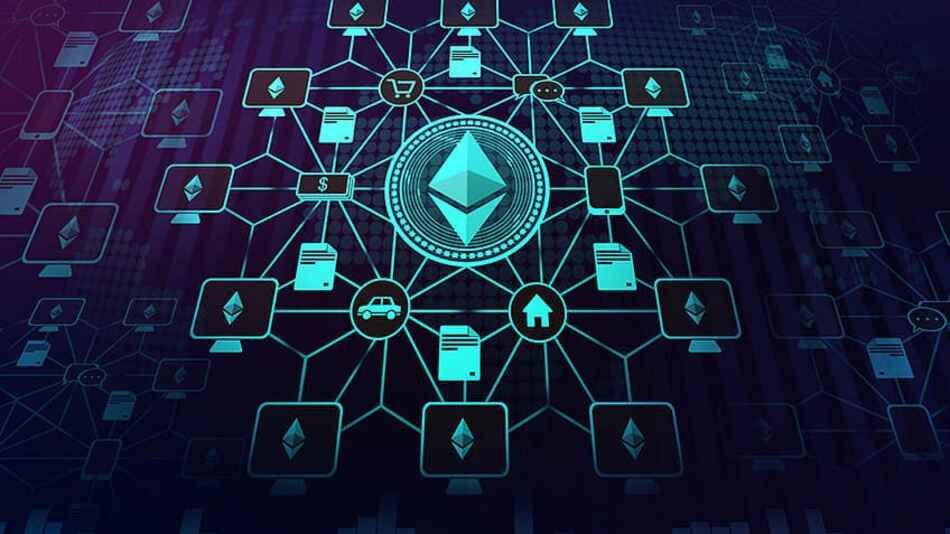
Decentralized Finance (DeFi) is not just a theoretical concept; it has tangible applications across various sectors, revolutionizing traditional industries. Let’s delve into some prominent DeFi use cases, including lending and borrowing, stable coins, decentralized insurance, prediction Decentralized Finance (DeFi) market, and asset tokenization, and discover how they are transforming their respective sectors.
1: DeFi Lending and Borrowing:
DeFi lending and borrowing platforms enable individuals to lend their crypto currencies and earn interest or borrow assets without intermediaries. These defi platform developments leverage smart contracts to automate loan agreements, collateralization, and interest payments. This disinter-mediated approach provides efficient access to capital for individuals and small businesses, fostering financial inclusion and reducing the barriers imposed by traditional lending institutions.
2: Stablecoins Decentralized Finance (DeFi):
Stablecoins are cryptocurrencies designed to maintain a stable value, often pegged to a fiat currency or a basket of assets. DeFi leverages stable coins to provide stability within its ecosystem, enabling users to transact and store value without the volatility associated with other cryptocurrencies. Stablecoins facilitate borderless transactions, remittances, and microtransactions, making them particularly useful in regions with volatile local currencies or limited access to traditional banking systems.
3: Decentralized Insurance:
DeFi is transforming the insurance industry by introducing Decentralized Finance insurance protocols. These platforms utilize smart contracts to automate the creation, management, and settlement of insurance policies. By removing intermediaries, decentralized insurance improves transparency, reduces costs, and enables more efficient claims processing. This innovation empowers individuals and businesses to protect their assets, mitigating risks in a trustless and decentralized manner.
4: Prediction decentralized finance market:
DeFi prediction markets leverage the wisdom of the crowd to make forecasts about real-world events. These markets allow individuals to trade prediction tokens representing the likelihood of specific outcomes. By aggregating and analyzing information from diverse participants, prediction markets offer insights into future events, enabling individuals to hedge risks, speculate on outcomes, and make informed decisions. DeFi prediction Decentralized Finance (DeFi) market access to predictive insights, challenging traditional forecasting methods.
5: Asset Tokenization:
Asset tokenization on defi platform development enables the representation of real-world assets, such as real estate, art, or commodities. As digital tokens on the defi in blockchain. Tokenization allows fractional ownership, increased liquidity, and seamless transferability of traditionally illiquid assets. By breaking down barriers to entry and enabling global investment opportunities. Asset tokenization on DeFi platforms Decentralized Finance access to valuable assets. Unlocking new avenues for investors and revolutionizing the concept of ownership.
These DeFi use cases are just the tip of the iceberg, showcasing the transformative potential of Decentralized Finance (DeFi) across diverse sectors. As the DeFi ecosystem continues to evolve and mature, it will undoubtedly disrupt more industries, redefine traditional business models, and empower individuals with newfound financial opportunities.
Embrace the power of DeFi, where lending becomes peer-to-peer, insurance becomes decentralized, and assets become easily tradable and accessible. Together, we are witnessing the dawn of a new era in Decentralized Finance. Where innovation and decentralization converge to reshape industries and create a more than also inclusive and interconnected global economy.
Navigating the Path to Decentralized Finance (DeFi)Success: Overcoming Challenges for a Secure and Sustainable Future
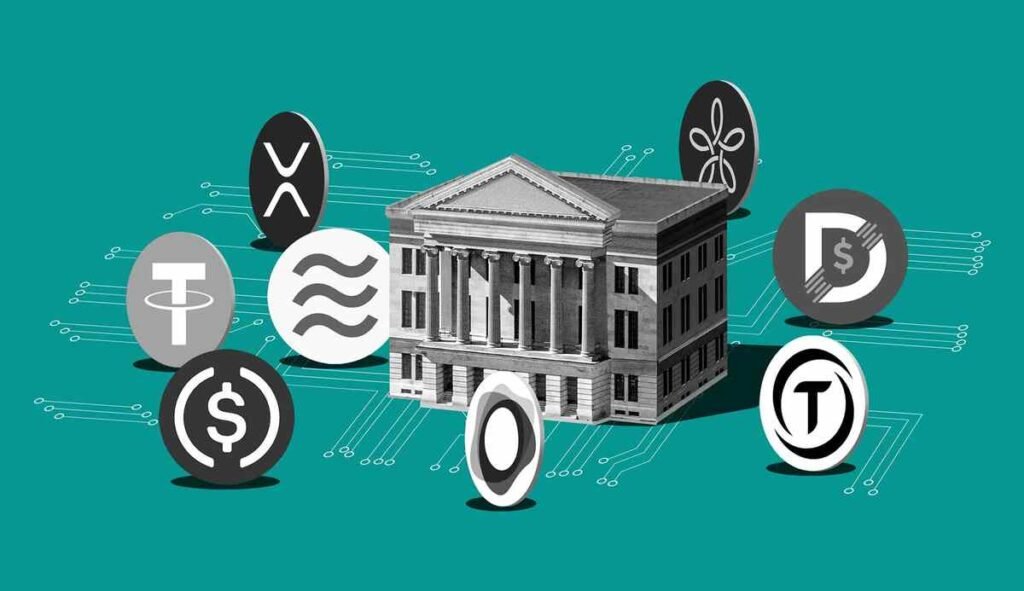
As Decentralized Finance (DeFi) gains momentum, it is essential to address the challenges and risks inherent in this innovative ecosystem. While DeFi offers tremendous potential, it also faces hurdles that require proactive solutions. Let’s explore some key challenges, including smart contract vulnerabilities, regulatory uncertainties, scalability issues, and user security concerns. Additionally, we’ll delve into the actions being taken by the DeFi community to address these challenges and pave the way for a secure and sustainable future.
1: Smart Contract Vulnerabilities:
Smart contracts, the backbone of DeFi, are susceptible to vulnerabilities and bugs than that could be exploited by malicious actors. Such vulnerabilities can also lead to financial losses or even the collapse of entire defi platform development. To mitigate these risks, the DeFi community is actively working on comprehensive security measures. This includes conducting thorough code audits, implementing formal verification processes, and promoting responsible disclosure of vulnerabilities. Moreover, Decentralized Finance (DeFi) governance models are being adopted to empower community-led decision-making and enhance the security of DeFi protocols.
2: Regulatory Uncertainties:
The regulatory landscape surrounding DeFi is still evolving, posing challenges for its widespread adoption. Regulators across the globe are grappling with the novel nature of DeFi and its potential implications for consumer protection, financial stability, and anti-money laundering efforts.
To address regulatory uncertainties, industry participants are engaging in constructive dialogues with regulators, providing education and insights into the benefits and risks of DeFi. Collaborative efforts aim to establish clear guidelines and frameworks that foster innovation while ensuring compliance with regulatory requirements.
3: Scalability Issues Decentralized Finance:
As DeFi grows in popularity, scalability becomes a pressing concern. Existing defi in blockchain infrastructures face limitations in terms of transaction throughput, network congestion, and high transaction fees. To overcome these challenges, the DeFi community is exploring various scaling solutions.
Such as layer-two protocols like Ethereum Optimistic Rollups and alternative blockchains with higher throughput. These solutions aim to enhance the scalability of DeFi platforms, reduce congestion, and lower transaction costs. Making DeFi more also accessible and efficient.
4: User Security Concerns Decentralized Finance (DeFi):
DeFi introduces a paradigm shift by enabling individuals to have full control over their funds. However, this increased control also places the responsibility for security squarely on the users’ shoulders. User mistakes, such as misplacing private keys or falling victim to phishing attacks, can also result in irreversible losses. To address these concerns, the DeFi community emphasizes user education and the defi platform development of user-friendly wallet interfaces. Multisig wallets, hardware wallets, and security best practices are being promoted to enhance user security and mitigate risks.
The DeFi community recognizes the importance of addressing these challenges to ensure the long-term success and sustainability of the ecosystem. Collaboration between developers, auditors, users, and regulators than is crucial to fostering a robust and secure DeFi landscape. Continuous research, defi platform development, and innovation are driving the evolution of DeFi Decentralized Finance, leading to enhanced security measures, improved regulatory clarity, and scalable infrastructure.
By collectively tackling these challenges. The DeFi community is paving the way for a more secure, inclusive, and trustworthy financial ecosystem. As the adoption of DeFi expands, these proactive efforts will help establish. DeFi is a mainstream alternative to traditional financial systems.
The Unstoppable DeFi Revolution: Exploring the Future Possibilities

The rise of DeFi has been nothing short of phenomenal, and its future looks even brighter. As the technology continues to mature and evolve, we can also expect to see new and exciting use cases emerge that have the potential to completely transform traditional financial systems. In this article, we will explore the potential of DeFi and its future possibilities.
One of the most significant upcoming trends in DeFi is cross-chain interoperability. Currently, many DeFi projects operate on separate blockchains, limiting their interoperability and creating silos of liquidity. Cross-chain bridges are being developed than that will allow for the seamless movement of assets and liquidity across different blockchains, enabling new possibilities for DeFi applications.
Another important trend is the defi platform development of Decentralized Finance (DeFi) identity solutions. This will enable users to have control over their data and identities, enhancing privacy and security in the DeFi ecosystem. Decentralized finance market identity also opens up the possibility for more than advanced DeFi applications. Such as credit scoring and reputation systems.
In addition to these trends, there is a growing focus on improving user experience in DeFi. Projects are working to simplify the onboarding process, reduce gas fees, and create more also intuitive user interfaces. These improvements will help to make DeFi more also accessible to the mainstream audience.
The potential impact of DeFi on traditional financial systems cannot be understated. With its ability to provide defi financial services to underserved populations, reduce reliance on intermediaries. Provide higher returns to users, DeFi has the potential to disrupt traditional financial systems. However, regulatory uncertainties and security concerns still exist. The DeFi community must continue to work together to overcome these challenges.
Embracing the DeFi Revolution: Unleashing the Future of Decentralized Finance (DeFi)
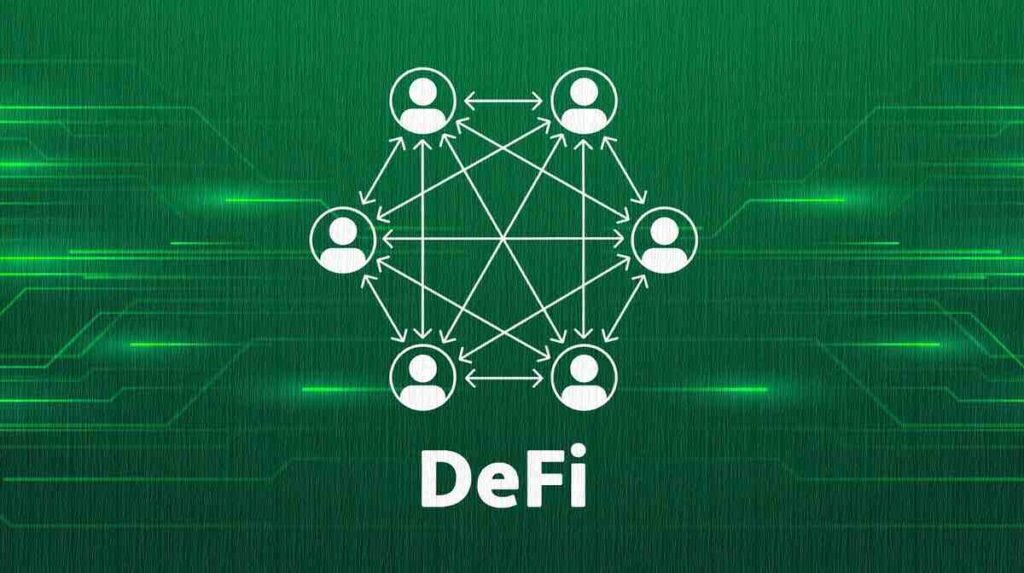
In this article, we’ve delved into the exciting world of Decentralized Finance (DeFi) and explored its transformative potential. We also discussed the growth of DeFi, its benefits, real-world applications, challenges, and the promising future it holds. Now, let’s recap the key points and encourage readers to embark on their own DeFi journey.
DeFi is disrupting traditional financial systems by leveraging the power of defi in blockchain technology and decentralization. It offers numerous benefits, including financial inclusion, reduced reliance on intermediaries, higher returns through yield farming, and global accessibility. From lending and borrowing to decentralized insurance and asset tokenization, Defies applications are revolutionizing various sectors.
While DeFi presents incredible opportunities, it also comes with challenges. Smart contract vulnerabilities, regulatory uncertainties, scalability issues, and user security concerns demand careful attention. However, the DeFi community is actively working to address these challenges through robust security measures. Constructive dialogues with regulators, scalability solutions, and user education.
Decentralized Finance (DeFi) has immense promise
The future of DeFi holds immense promise. Cross-chain interoperability will unlock new possibilities, Decentralized Finance identity solutions will enhance privacy and security. Improved user experiences will make DeFi more than accessible to all. The potential impact of DeFi on traditional financial systems is profound. The potential to foster financial inclusion, disintermediate intermediaries, and empower individuals globally.
Now is the time to explore DeFi further and participate in this groundbreaking financial movement. Set up a secure wallet, conduct due diligence, diversify your portfolio, and stay informed. Choose reliable defi platform development and leverage than popular DeFi projects to experience the benefits firsthand. Embrace the Decentralized Finance (DeFi) future and become an active participant in shaping the financial landscape of tomorrow.
Join the DeFi community, follow reputable resources, and engage in discussions. Continuously educate yourself and contribute to the ongoing evolution of DeFi. The transformative potential of DeFi awaits those who are willing to seize the opportunity and embrace this new era of financial innovation.
Embark on your DeFi journey today and be part of the revolution that is reshaping Decentralized Finance (DeFi) as we know it. Together, let’s build a future that is inclusive, accessible, and decentralized.
You can also visit: Metaverse Virtual World






